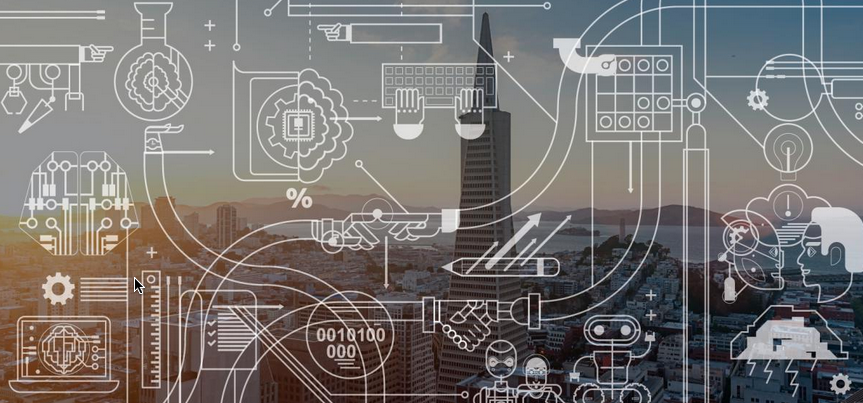How AI may affect urban life in 2030
September 2, 2016

(credit: AI100)
Specialized robots that clean and provide security, robot-assisted surgery, natural language processing-augmented instruction, and helping people adapt as old jobs are lost and new ones are created: these are some of the profound challenges explored by a panel of academic and industrial thinkers that has looked ahead to 2030 to forecast how advances in artificial intelligence (AI) might affect life in a typical North American city.
Titled “Artificial Intelligence and Life in 2030,” this open-access year-long investigation is the first product of the One Hundred Year Study on Artificial Intelligence (AI100), an ongoing project hosted by Stanford University to inform society and provide guidance on the ethical development of smart software, sensors and machines.
The new report traces its roots to a 2009 study by AI scientists in 2014, when Eric and Mary Horvitz created the AI100 endowment through Stanford.
The 28,000-word report includes a glossary to help nontechnical readers understand how AI applications such as computer vision might help screen tissue samples for cancers or how natural language processing will allow computerized systems to grasp not simply the literal definitions, but the connotations and intent, behind words.
“Currently in the United States, at least sixteen separate agencies govern sectors of the economy related to AI technologies,” the researchers write. “Who is responsible when a self-driven car crashes or an intelligent medical device fails? How can AI applications be prevented from [being used for] racial discrimination or financial cheating?”
Beyond science fiction books and movies
“Until now, most of what [the public knows] about AI comes from science fiction books and movies,” Stone said. “This study provides a realistic foundation to discuss how AI technologies are likely to affect society.”
The study raises questions such as: How can AI applications be prevented from unlawful discrimination? Who should reap the gains of efficiencies enabled by AI technologies and what protections should be afforded to people whose skills are rendered obsolete?
To help address concerns about the individual and societal implications of rapidly evolving AI technologies, the Study Panel offers three general policy recommendations:
- Define a path toward accruing technical expertise in AI at all levels of government.
- Remove impediments to research on the fairness, security, privacy, and social impacts of AI systems.
- Increase public and private funding for interdisciplinary studies of the societal impacts of AI.